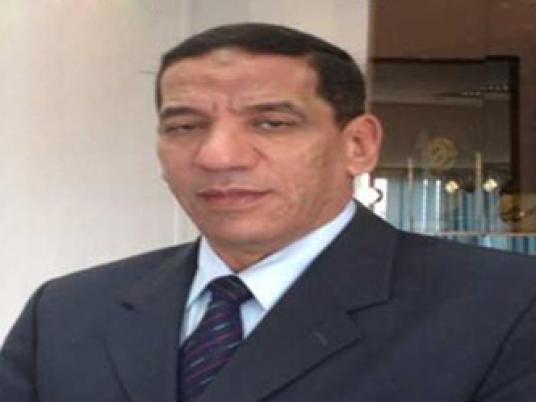We wrote this article on September 11, 2007-an anniversary with particular meaning for us. We are Father Khader El-Yateem and Marcia Kannry, board members of the Dialogue Project, an organization that works with multi-ethnic and religiously diverse communities in the New York City area. In particular, we bring dialogue to communities where new Arab and Muslim immigrants live and work alongside long-term residents of various ethnicities. We use dialogue to help people learn to value diverse faiths and cultures, and address inter-group conflict.
For both of us-Marcia, a Jewish-Israeli American, and Father Khader, a Palestinian-Christian American-this article represents victory, for we did not allow the events of 9/11 and the continuing conflict in Palestine and Israel to divide us. Instead, we have used the safe environment of facilitated dialogue to address issues that cause agony and suffering, and to share stories that make us laugh. This willingness to tackle our differences in a positive, fruitful way brings us hope.
Marcia founded the Dialogue Project in spring 2001, aware of rising tensions between Jews and many Arabs and Muslims in Brooklyn. She organized an encounter program at a local synagogue, and over 200 community members attended, 85 of whom signed up for the first dialogue circle that May.
Meanwhile, Khader, pastor of Salam Arabic Lutheran church, was developing relationships with local Muslim and Jewish leaders in Bay Ridge-a neighborhood with many Arab and Muslim immigrants. He helped create a task force that organized bridge-building events. We met at one of them, and Father Khader has since joined the Dialogue Project board.
The Dialogue Project now conducts six dialogue circles focused on the Middle East, plus Speaking Across Differences, a program that uses dialogue to break through barriers of suspicion in neighborhoods where new Arab and Muslim populations mix with more established Italian, Anglo, Irish, Jewish, Norwegian, African American, Asian and Latino communities.
Our dialogue model emphasizes active, generous and reflective listening to create an environment where people feel free to express their ideas without fear of being judged. Most importantly, we do not invest in, nor expect a specific end result. This means that people who remain far apart politically can still develop warm relationships and trust, precisely because they are not pushed to come to a consensus. Groups ranging from 5 to 20 people meet once a month. Participants are asked to speak from the I and avoid claiming that their views represent their entire community. We attempt to really hear and understand the other , whether we agree or not, and to speak honestly about hot issues, like the Palestinian right of return, Zionism and security concerns.
In these dialogues, Arabs and Muslims learn that they re not the only community that has been excluded or profiled in this country. Some participants discover that their next-door neighbor feels threatened because they wear a hijab, or pray at a mosque; others discover that their white skin has conferred them privileges of which they were previously unaware.
Father Khader was raised in Beit Jala, Palestine, and has found it difficult to speak of his life experiences there to people in the US. He thinks that people often view Israel s actions as justified and take its assertions at face value, while Palestinians must defend their statements. Friends back home in Palestine become upset when told that he meets with Jews and Israelis in New York. Yet despite such challenges, he values the opportunity to share his personal story of being arrested and tortured in Israeli prisons, and to see others in the circle taking in and understanding his feelings.
Marcia has also been changed through this kind of dialogue. She s a former regional director for the Jewish National Fund, but now relates differently to people in her Jewish community about Palestinians and their homeland, Palestine. She better understands the deep fear of both anti-Jewish and anti-Arab attitudes, and instead of arguing with others about the occupied territories, she tries to share what she has learned in dialogue about the reality of people s lives there.
In these ways, we, and other Dialogue Project participants, have seen how regular and sustained dialogue can produce transformation, not just within the circle but beyond-out into the world-as we bring our changed attitudes and insight into our respective communities. People who barely coexisted now move past fear and mistrust-some have created community projects, including interfaith teach-ins and educational forums on immigration.
We see our model as a path toward more joint ventures, perhaps eventually toward adult education programs and advocacy. And we hope to expand our dialogues to include a broader, conservative cross section of Jews and Palestinians-achieving deeper, richer conversations.
The ability to really listen, without making an automatic retort, requires practice. Once that skill is developed, dialogue shows us how to sit together with our differences, rather than storming out of the room. Often we are asked, How can my one voice make any difference? We answer, Yours may be the voice that brings understanding to the other side.
Marcia Kannry, president of the Dialogue Project board, is a Jewish American whose experience with Christian-Jewish dialogue in the United States and Palestinian-Israeli dialogue in Israel led her to found the Dialogue Project. Father Khader El Yateem, board member and treasurer of the Dialogue Project, is pastor of the Salam Arabic Lutheran Church in Bay Ridge, Brooklyn. This article is distributed by the Common Ground News Service (CGNews) and can be accessed at www.commongroundnews.org.

